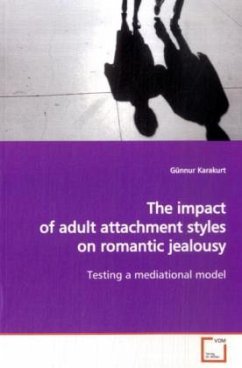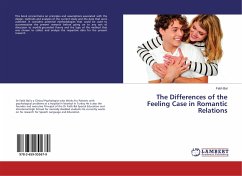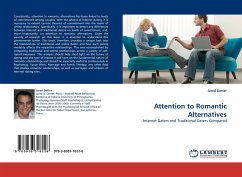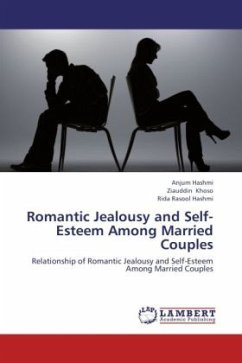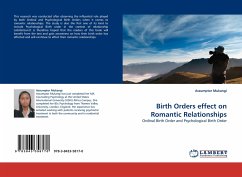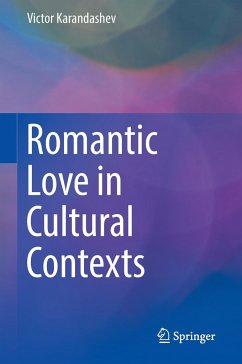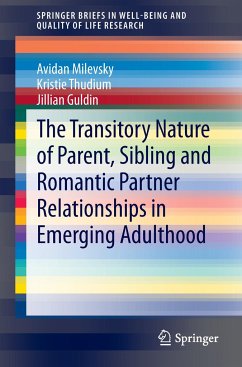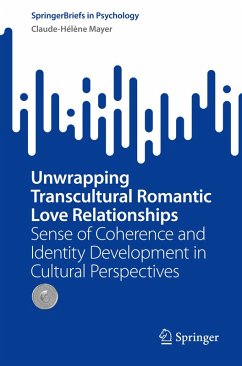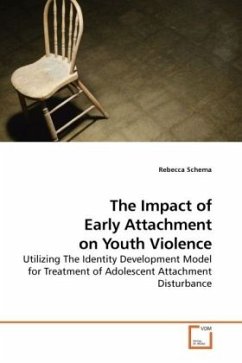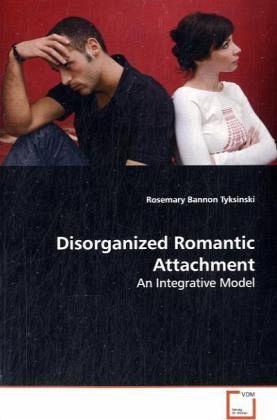
Disorganized Romantic Attachment
An Integrative Model
Versandkostenfrei!
Versandfertig in 6-10 Tagen
52,99 €
inkl. MwSt.

PAYBACK Punkte
26 °P sammeln!
Chronic patterns of hostile and disorganizedcontrolling behaviors account for more than half ofthe most destructive interactions experienced bycouples in romantic relationships. These behaviorsare often accompanied by affective reactivity, and aconfusing, chaotic dynamic of intersubjectivedistortions. Dr. Rosemary Bannon Tyksinski is thefirst to trace three distinct disorganized attachmenttrajectories from infancy, childhood, and adolescenceto adulthood. In this book she describes thelong-term consequences of disorganized attachment asit affects adult cognition, affect, and behaviorthe ultimat...
Chronic patterns of hostile and disorganized
controlling behaviors account for more than half of
the most destructive interactions experienced by
couples in romantic relationships. These behaviors
are often accompanied by affective reactivity, and a
confusing, chaotic dynamic of intersubjective
distortions. Dr. Rosemary Bannon Tyksinski is the
first to trace three distinct disorganized attachment
trajectories from infancy, childhood, and adolescence
to adulthood. In this book she describes the
long-term consequences of disorganized attachment as
it affects adult cognition, affect, and behavior
the ultimate impact on romantic relationships. She
presents an Integrative Model of Adult Romantic
Attachment that synthesizes empirical findings from
studies across the lifespan. She integrates these
findings with both the 3- and 4-category models of
adult attachment. Attachment theorists and couples
therapists will benefit from Dr. Tyksinski's
innovative, organized approach to understanding and
treating this difficult population.
controlling behaviors account for more than half of
the most destructive interactions experienced by
couples in romantic relationships. These behaviors
are often accompanied by affective reactivity, and a
confusing, chaotic dynamic of intersubjective
distortions. Dr. Rosemary Bannon Tyksinski is the
first to trace three distinct disorganized attachment
trajectories from infancy, childhood, and adolescence
to adulthood. In this book she describes the
long-term consequences of disorganized attachment as
it affects adult cognition, affect, and behavior
the ultimate impact on romantic relationships. She
presents an Integrative Model of Adult Romantic
Attachment that synthesizes empirical findings from
studies across the lifespan. She integrates these
findings with both the 3- and 4-category models of
adult attachment. Attachment theorists and couples
therapists will benefit from Dr. Tyksinski's
innovative, organized approach to understanding and
treating this difficult population.



